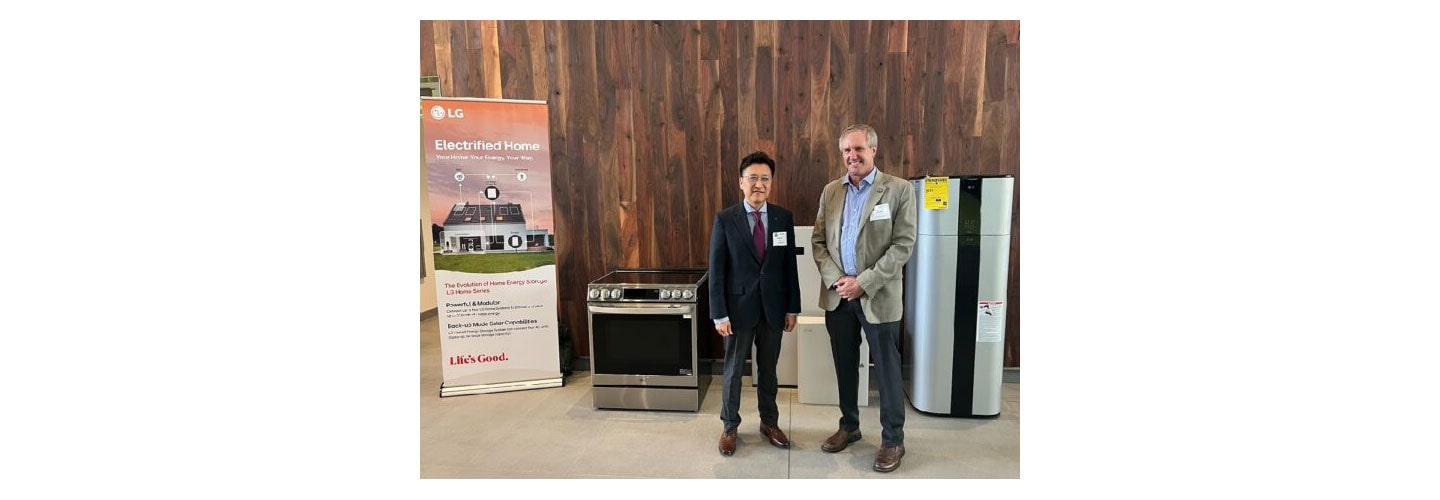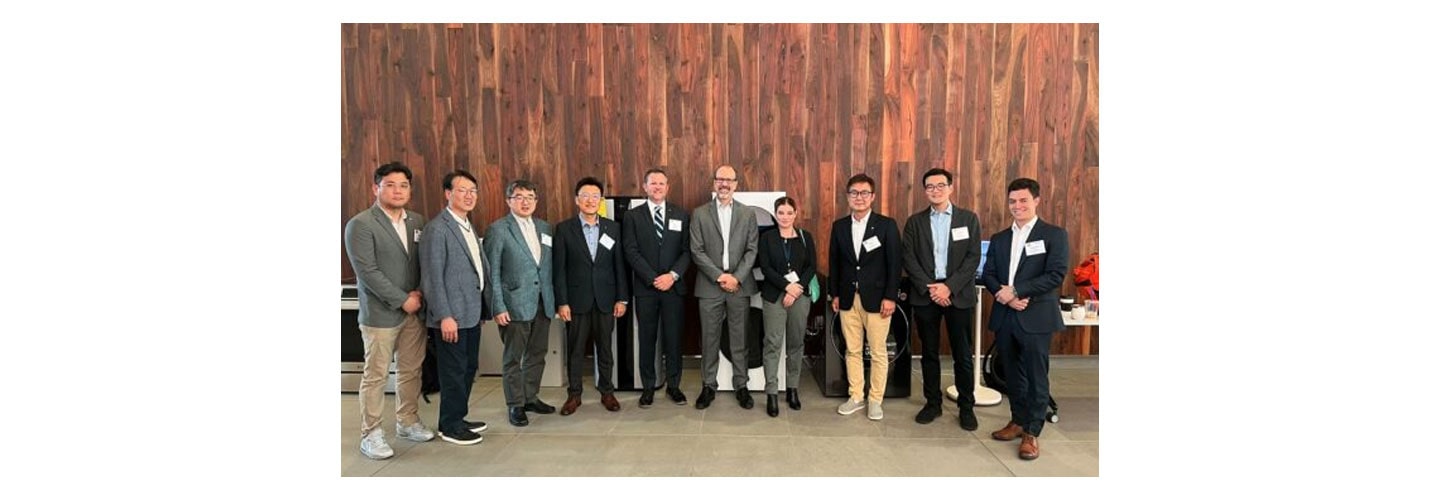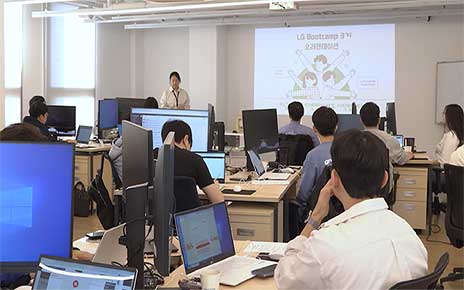We use cookies, including cookies from third parties, to enhance your user experience and the effectiveness of our marketing activities. These cookies are performance, analytics and advertising cookies, please see our Privacy and Cookie policy for further information. If you agree to all of our cookies select “Accept all” or select “Cookie Settings” to see which cookies we use and choose which ones you would like to accept.
Supporting California’s Climate Goals with Electric Heat Pumps
-
extension : zipimages_9845394888.zip
-
extension : imgLGEUS-Heat-Pump-Commitment-Announcement_1.jpg
-
extension : imgLGEUS-Heat-Pump-Commitment-Announcement_2.jpg
-
extension : imgLGEUS-Heat-Pump-Commitment-Announcement_3.jpg
-
extension : imgLGEUS-Heat-Pump-Commitment-Announcement_4.jpg
-
extension : imgLGEUS-Heat-Pump-Commitment-Announcement_5.jpg
-
extension : imgLGEUS-Heat-Pump-Commitment-Announcement_6.jpg
-
extension : imgLGEUS-Heat-Pump-Commitment-Announcement_7.jpg
California, a western U.S. state, is currently experiencing a climate crisis, with droughts, wildfires and extreme heat everyday realities. To address this, last year, the state outlined new targets and actions to reach its 2030 climate goals and achieve net carbon neutrality by 2045. To create climate-ready and climate-friendly homes, the state set a goal to install 6 million electric heat pumps by 2030.
Committed to building decarbonization in the state and across the United States, LG announced its commitment to a series of actions supporting California’ electric heat pump goal during a landmark two-day summit in California exploring affordable, reliable and equitable pathways to electrifying buildings.

(From left to right) Chris Ahn, president of LG Electronics USA Air Solutions, and David Hochschild, chairman of California Energy Commission
Home electrification represents a major inflection point for LG as the company is transformed into a smart life solutions company over the next several years, according to Chris Ahn, president of LG Electronics USA Air Solutions.

Chris Ahn, president of LG Air Solutions USA (right), was joined by executives from other leading HVAC manufacturers at the California “Clean and Healthy Homes for All” building electrification summit
To help California achieve its goal of installing 6 million heat pumps by 2030, LG committed to expand manufacturing capacity, collaborate with the California Energy Commission (CEC) to bring heat pumps into the mainstream and maximize efficiency and load flexibility to ensure that heat pumps are good citizens of the electric grid. LG was joined by other leading manufacturers of home comfort and water heating equipment agreeing to support California’s aggressive electric heat pump goals.

J. Andrew McAllister, lead commissioner of CEC (second from the right) briefing LG executives and guests during the two-day summit
“Partnerships with industry are critical in aligning policy and reality,” said J. Andrew McAllister, lead commissioner on energy efficiency at the CEC. “This new commitment will ensure grid-friendly heat pumps are widely available and help consumers understand why they’re the better choice for both climate and comfort.” He applauded LG for “stepping up to strengthen California’s ability to deliver on our goal to install 6 million heat pumps over the next six years.”
According to the California Energy Commission, heat pumps are known as highly efficient electric technology for water and space heating that produce fewer emissions than traditional HVACs and water heaters. With California’s 2022 Energy Code establishing heat pumps as the standard for new single-family homes, more than 1.5 million are currently installed throughout California.

During California’s “Clean and Healthy Homes for All” building electrification summit, hosted by the CEC and the Electric Power Research Institute in Sacramento, LG highlighted its leadership in building decarbonization. On display there were a number of the company’s innovations led by its all-electric heat-pump HVAC system, heat pump water heater and heat pump clothes dryer, as well as its residential energy storage system, induction range and the unique WashTower™ smart laundry system.

Speaking on behalf of LG during the summit’s spotlight panel, LG Electronic USA Senior Vice President Steve Scarbrough underscored the significance of heat pump technology for home electrification and more. “At LG, we see heat pump products as integral parts of a smart home ecosystem, complementing connected appliances and, equally important, the integration of energy storage and energy management with advanced software and platforms,” he said. “The market transformation enabled by heat pump technologies will be accelerated by delivering on the long-awaited promise of the smart home, coupled with today’s emphasis on a zero-carbon lifestyle.”

(From left to right) Ryan Yoon, director of ESS Engineering & Business Management at LG Electronics USA (LGEUS); Jae Ahn, vice president of the ThinQ Platform business at LGEUS; JS Lee, senior vice president of compliance at LGEUS; Chris Ahn, president of LG Air Solutions USA; Steve Scarbrough, senior vice president at LG Air Conditioning Technologies USA; Andrew McAllister, CEC’s lead commissioner on energy efficiency; Kathryn Kynett, advisor to Commissioner McAllister; Sean Kim, LGEUS policy and regulatory compliance director; David Kim, LGEUS senior policy manager; and Vincent Saputo, policy analyst at LGEUS. Brantly Varner, LGEUS Home Appliance Vice President (not pictured), also participated in the summit
ENERGY STAR Partner of the Year LG Electronics USA is an active member of the U.S. Environmental Protection Agency’s Manufacturers’ Action Councils for heat pump water heaters and heat pump HVAC systems and participates in the Advanced Water Heater Initiative. LG also is the first home appliance member of the Building Decarbonization Coalition, which is paving the way to America’s clean energy future.

The California Energy Commission is leading the state to a 100 percent clean energy future. It has seven core responsibilities: developing renewable energy, transforming transportation, increasing energy efficiency, investing in energy innovation, advancing state energy policy, certifying thermal power plants and preparing for energy emergencies.
Contributed by LG USA


